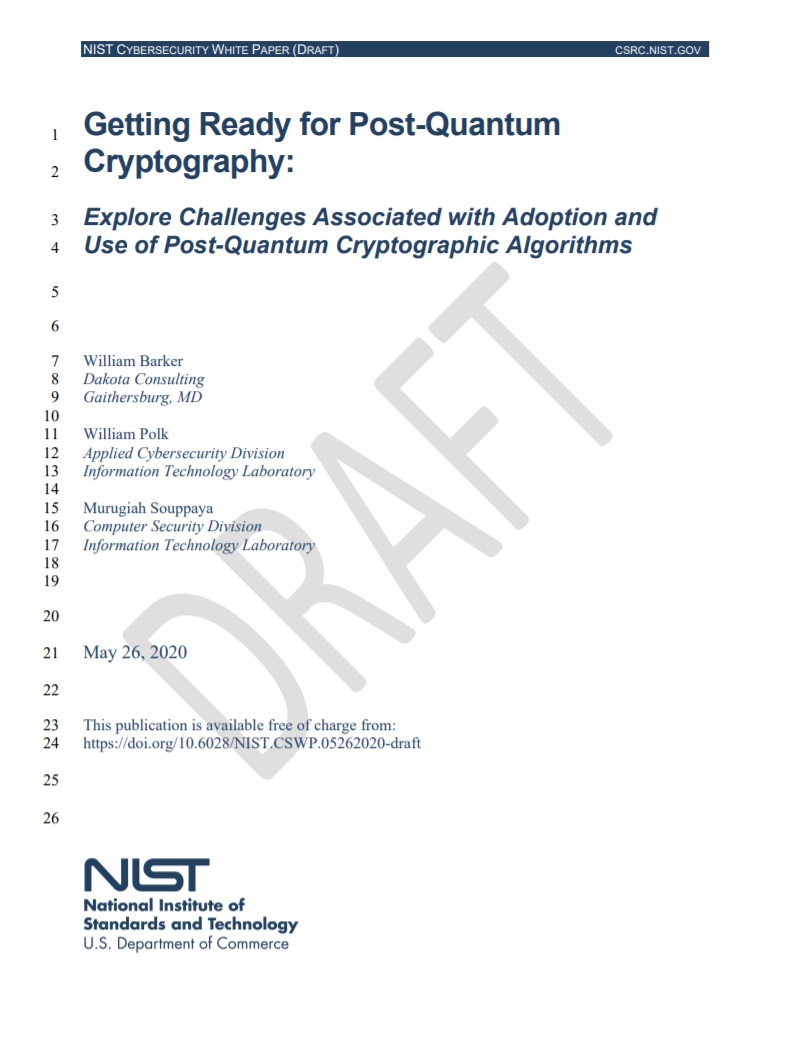Worspace / Risk
- Home Page 463

Edge Data Centers
This content is accessible to paid subscribers. To view it please enter your password below or send mike@standardsmichigan.com a request for subscription details.
Post-Quantum Cryptographic Algorithms
Comments due June 30th.
CLICK HERE for information about how to submit comments. We maintain NIST activity on the standing agenda of our Federal Action teleconferences. See our CALENDAR for the next online meeting; open to everyone.
Corroded Pipe Temp ASME
The American Society of Mechanical Engineers (ASME) has registered a Project Initiation Notification with ANSI to launch a revision to its consensus product ASME PM-202x, Performance Monitoring for Power Plants. This product should interest stakeholders in involved in college and universities with district energy plants — facility management staffs, consulting engineers, operations and maintenance staff.
From the project prospectus:
These Guidelines cover fossil-fueled power plants, gas-turbine power plants operating in combined cycle, and a balance-of-plant portion including interface with the steam supply system of nuclear power plants. They include performance monitoring concepts, a description of various methods available, and means for evaluating particular applications.
Since the original publication of these Guidelines in 1993—then limited to steam power plants—the field of performance monitoring (PM) has gained considerable importance. The lifetime of plant equipment has been improved, while economic demands have increased to extend it even further by careful monitoring. The PM techniques themselves have also been transformed, largely by the emergence of electronic data acquisition as the dominant method of obtaining the necessary information.
These Guidelines present:
• “Fundamental Considerations”—of PM essentials prior to the actual application, so you enter fully appraised of all the requirements, potential benefits and likelihood of tradeoffs of the PM program.
• “Program Implementation”—where the concepts of PM implementation, diagnostics and cycle interrelationships have been brought into closer conjunction, bringing you up-to-date with contemporary practice.
• “Case Studies / Diagnostic Examples”—from the large amount of experience and historical data that has been accumulated since 1993.
Intended for employees of power plants and engineers involved with all aspects of power production.
From ANSI’s PINS registry:
Project Need: This document is being developed in order to address performance monitoring and optimization techniques for different power generating facilities. The latest trends and initiatives in performance monitoring as well as practical case studies and examples will be incorporated.
Stakeholders: Designers, producers/manufacturers, owners, operators, consultants, users, general interest, laboratories, regulatory/government, and distributors.
This document will cover power generation facilities including steam generators, steam turbines, and steam turbine cycles (including balance of plant of nuclear facilities), gas turbines, and combined cycles. The guidelines include performance monitoring concepts, a description of various methods available, and means for evaluating particular applications.
No comments are due at this time. The PINS announcement was placed on October 11th*. The PINS registry is a stakeholder mapping platform that identifies the beginning of a formal process that may interest other accredited, competitor standards developers. Many ASME consensus products may be indirectly referenced in design guidelines and construction contracts with the statement “Conform to all applicable codes”
The landing page for the ASME standards development enterprise is linked below:
Note that you will need to set up a (free) account to access this and other ASME best practice titles.
We maintain all ASME consensus products on the standing agenda of our periodic Mechanical and Energy teleconferences. See our CALENDAR for the next online meeting; open to everyone.
Issue: [19-148]
Category: District Energy, Energy, Mechanical
Colleagues: Richard Robben, Larry Spielvogel
LEARN MORE:
Standards Maine Workspace
This content is accessible to paid subscribers. To view it please enter your password below or send mike@standardsmichigan.com a request for subscription details.
Mandatory Deposit of Electronic-Only Books July 29, 2020
This content is accessible to paid subscribers. To view it please enter your password below or send mike@standardsmichigan.com a request for subscription details.
Water Testing Standards ASTM
This content is accessible to paid subscribers. To view it please enter your password below or send mike@standardsmichigan.com a request for subscription details.
Workspace / ISO
This content is accessible to paid subscribers. To view it please enter your password below or send mike@standardsmichigan.com a request for subscription details.
Workspace / IAPMO Group
This content is accessible to paid subscribers. To view it please enter your password below or send mike@standardsmichigan.com a request for subscription details.
https://www.govtrack.us/congress/bills/116/s3701/text
This content is accessible to paid subscribers. To view it please enter your password below or send mike@standardsmichigan.com a request for subscription details.
New update alert! The 2022 update to the Trademark Assignment Dataset is now available online. Find 1.29 million trademark assignments, involving 2.28 million unique trademark properties issued by the USPTO between March 1952 and January 2023: https://t.co/njrDAbSpwB pic.twitter.com/GkAXrHoQ9T
— USPTO (@uspto) July 13, 2023
Standards Michigan Group, LLC
2723 South State Street | Suite 150
Ann Arbor, MI 48104 USA
888-746-3670
















